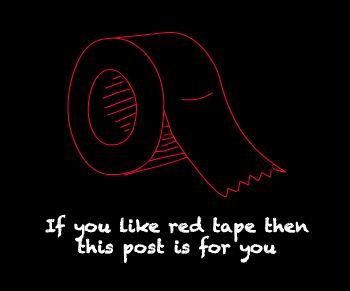Knowing how much you need to live on is key to achieving financial independence (FI). But a common mistake is not accounting for the depreciation of big-ticket items, and for irregular but direct hits to your bank balance.
We’re talking about expenses that don’t happen very often, but bust the budget when they do.
For example, replacing the roof is a peril that hangs over my head like an Independence Day UFO, or a menacing killer asteroid patrolling the edge of the solar system.
You know something’s lurking out there. It just hasn’t arrived to blow apart your financial life yet.
One option is to bury your bonce in a convenient bucket of sand. But if your FIRE 1 annual income is to withstand reality, it needs to include these dark star expenses – lest a cluster of them materialise and put a black hole in your budget.
Identify the cost-bombs
First, you need to list the shock expenses that individually show up once in a blue moon – and yet one or another occurs all the time.
For example: new car, boiler, windows, roof, white goods, tech, replacing kitchens, bathrooms, and private jets (I can dream).
Bucket list items might go on here, too. For example, trips of a lifetime, dream house move, and your next wedding or divorce. (I jest but personal tastes vary).
Next, you need to estimate these costs, and then average them out across the years. This way you can add a single figure to your annual FIRE income.
We’re not attempting to predict the exact cost or timing of these events. The idea is to create enough wiggle room in our budgets so that we can deal with the bills when they land like Space Invaders.
In lucky years, you’ll underspend. Any spare cash can then be dropped into your piggy bank! (Of course it will).
In years where you crossed a black cat or similar, you’ll need to raid that piggy bank for extra cash. But that’s okay because your overall FI number was built to withstand these expenses over a lifetime.
Straight line depreciation
The Internet runneth over with advice of varying quality on these matters. But I find straight line depreciation is a simple yet useful accounting technique.
Straight line depreciation helps smooth out the cratering effect of each expense into more of a boulder field on my spreadsheet.
Each item is rendered as a depreciating asset using this formula:
(Cost of asset – resale value of asset) / asset’s useful life
= cost per year
For example, if the replacement cost of my car is £11,000 and I can subtract £1,000 for resale value, then if I expect the car to last for 10 years… I need to budget £1,000 for a new car every year in my annual income figure. (Plus a dollop for inflation as the days go by.)
Theoretically, I’ll underspend by £1,000 every year and £10,000 will be ready to purchase the car when it finally kicks the rust-bucket in ten years.
Real life doesn’t work as neatly as that. But, in principle, this is how to build a FIRE budget that can bend with the bills that come blowing in.
Run through this exercise for every item you put on your whopper-expenses list. You’ll then have the extra amount you need to budget for, on top of your day-to-day living costs that are easier to track.
Of course, this model comes with more qualifiers than the Champions League 2.
For a start, you’ve probably already noticed it’s a massive guesstimate.
That’s because straight line depreciation requires some kind of grip, however infirm, on:
- Cost of replacement (very approximate)
- Lifespan (more approx still)
- Resale value (super approxy)
Despite notching fairly impressive numbers for neuroticism on the Big Five Personality Trait tests, I’m comfortable that this is a lot of guesswork.
The priority is to add a number to your budget that will enable it to flex to cope. This way you avoid sticking your head in the sand – or worse, actually leaving employment without having accounted for these future expenses at all.
Personally, I aim to make this task relatively easy to do and to update annually. As opposed to modelling every eventuality like I’m a supercomputer, but then never being able to face doing it ever again.
Make it doable
The first thing I did was drop the resale value part of the depreciation equation. That makes my numbers more conservative and saves me a sack of work.
What about the cost of replacement and plausible lifespan elements?
Well, there are websites that publish lists of costs for a mind-boggling array of home items, along with their lifespan.
Gawd knows how useful that is.
Some publish costs in dollars and they have to be putting their finger in the air like they just don’t care.
For certain things, it helps to consult, for example, a ‘New boiler cost’ article, if you don’t have prior experience of the job in question.
If you’re conservative or sense that you’re sitting on a cost timebomb (such as an old house with ancient pipework that should probably be condemned), then plump for the high-end of the price range.
My roof sits on the edge of oblivion, so it was sensible to ask a couple of roofers for a cost estimate. Next big storm, and one of them will get the work.
White goods – I’ve replaced most of them in my time, so I’ve got prices in my budget tracker. Otherwise, it’s easy enough to find the price of a fridge that looks the part.
Brand promiscuity – There are items that many of us don’t care that much about but know roughly how much we’re prepared to spend. The car falls into this category for me. I’ve set a price ceiling and I’ll operate within that next time.
Brand loyalty – Sad to say I’ve got this terrible affliction when it comes to my laptop. As long as I keep tabs on Apple’s latest price-gouging hijinks then I’m sorted. Though it might be cheaper to pay a psychoanalyst to fix my mind.
Past experience and years of budget tracking have given me a reasonable sense of how often I replace my big-ticket items. I’ll take an online estimate for everything else. You can also ask friends and family.
I don’t revisit the prices for everything on my list annually. I simply adjust upwards for inflation and update from my personal experience.
It’s probably a good idea to review the price for each item every five years. Costs can escalate drastically where materials, methods, or health and safety legislation have changed since you last looked. (I don’t actually do this but I should.)
Obviously it’s better to research in-depth any expenses that may be a very large and open-ended can of Lambton worms.
Yes, I’m thinking of my roof again.
What goes on the big expenses and depreciation list?
This really depends on personal preference, but here’s some ideas:
- Windows
- Gutters
- Roof (AIEEEE!)
- Boiler
- New kitchen and bathroom installation
- Redecorating every other room in the house
- Oven
- Fridge
- Washing machine / dryer
- Dishwasher
- Fencing
- Car
- Computer
- TV
- Bikes
Lifestyle counts for a lot here. I read a comment from someone talking about how they replace their couch every seven years. I’ve owned one couch ever, it’s near 30-years old, and I still love it.
You’ll also need to adjust your numbers for things nearing the end of their useful life.
For example, if the Internet says your windows need replacing every 25 years but yours are held together by paint, putty, and the power of prayer, then it’s better to set aside a lump sum than spread the cost across your annual budget.
Anytime I ask an expert to look at something in my house that leaks, creaks, or causes Mrs A. to freak, they generally say it could go anytime in the next five years.
Home maintenance rules of thumb
The expenses listed above are on top of basic home maintenance – that is the ongoing cost of patching things up, nailing stuff down, and stopping the place falling apart.
Various upkeep rules of thumb have colonised the Internet.
Here’s a common one:
Allocate 1% to 4% of your house price to your annual home maintenance budget.
You could go with 1% if your home is less than five-years old. Perhaps 4% if it’s past its 25th birthday. Maybe add a premium if you live in a Grade 1 listed medieval property in Lower Slaughter.
Obviously you can run a coach and horses through that range depending on the existing state of your home, construction type, location, size, and so on. And so some prefer this guideline:
£1 per square foot of property size = annual home maintenance budget
My guess is that these rules of thumb caught on because they’re simple, not because they’re accurate. I mention them because they’re a starting point if you don’t have much experience of home ownership or tracking your expenses.
These days I just average out my home maintenance costs tracked over the last decade.
Don’t over-optimise
Most of us can swap war stories of expensive gear that broke 24 hours after the warranty expired.
Equally, we all have a heart-warming tale of that one heirloom appliance that’s still going strong, even though spare parts can only be sourced from a museum.
All of which says to me: it’s better to be roughly right than waste a lot of time being precisely wrong. I’m not running one of the big four accountancy firms.
Because bad luck runs in threes, I maintain my emergency fund in decumulation. I will dip into this when replacement costs are sky high and replenish when my luck changes.
After minimum pension age, I’ll be able to access my entire stash and then it’ll be fine to spend more than my sustainable withdrawal rate to meet a big expense occasionally, on the assumption that I’ll spend less in the years when nothing breaks.
Lumpy expenses can even be smoothed out by paying on a 0% credit card as long as you’re sure you can pay off in full, or that you will transfer the balance once the promotional period expires.
Others will dip into offset mortgage accounts or pawn the kids.
Let us know in the comments what techniques you use to account for irregular budget blowouts and depreciation.
Take it steady,
The Accumulator




